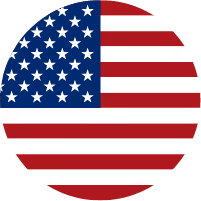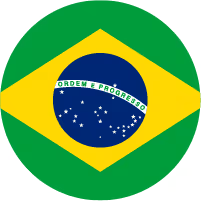What Kind of Settlement Can a Florida Hurricane Damage Attorney Help You Secure?
A Florida hurricane attorney can help you secure various types of settlements and compensation for the losses incurred due to a hurricane, including:
- Property damage: This includes damage to your home, business, or other property like detached garages, decks, fencing, swimming pools, and pool cages. A skilled attorney can help you obtain a settlement to cover the repair or replacement costs. This settlement should consider the actual cost of repairs, including structural damage, roofing, flooring, and other essential components of your property.
- Personal belongings: Hurricanes can lead to the destruction or loss of personal belongings and valuable items. Your attorney can work to secure a settlement that compensates you for the value of the contents that were damaged or destroyed, such as furniture, electronics, appliances, and personal possessions.
- Business interruption: If your business was impacted by the hurricane, causing temporary closure or loss of income, a hurricane damage attorney can advocate for a settlement to cover your business interruption losses. This compensation can help you recover lost revenue and cover ongoing expenses during the period of interruption.
- Additional living expenses: If you were forced to evacuate your home and paid for a rental car or additional living expenses, such as hotel accommodations and food costs, a skilled attorney can help you pursue a settlement to reimburse these expenses.
- Loss of use: If your property is uninhabitable due to hurricane damage, you may be entitled to compensation for the loss of use. This settlement can help cover alternative living arrangements until your property is restored.
Dealing with insurance companies can often be more upsetting than the storm itself. Insurance companies can be difficult to negotiate with, especially in the aftermath of a hurricane when numerous claims are being processed. In some cases, insurance companies may deny or undervalue your claim.
A hurricane damage attorney can also represent you in insurance claims disputes and, if necessary, take your case to court to fight for a fair settlement. We negotiate with the insurance company on your behalf, ensuring that you are not unfairly denied coverage or offered an insufficient settlement.
By enlisting the services of a knowledgeable hurricane damage attorney, you can maximize your chances of securing a comprehensive settlement that adequately covers your losses and helps you rebuild your life after the devastating impact of a hurricane. Contact Osborne, Francis & Pettis at (561) 293-2600 for experienced local representation.
What Kind of Storm Damage Can a Florida Hurricane Claims Attorney Handle?
A Florida hurricane claims lawyer can handle various types of storm damage, including:
- Property and possessions damage: This includes damage from wind, water, floods, and infestations that result from the storm such as mold, fire ants, or wildlife damage.
- Loss of income: Attorneys can handle claims for lost income and business interruption suffered by businesses as a result of hurricane damage, helping them recover financial losses during downtime.
- Negligence lawsuits: If your damages or losses were caused because your landlord failed to maintain or secure your residence, you may be eligible to file a claim against the property owner under premises liability. Government failures such as delayed evacuation notices or poorly maintained public infrastructure like roads or powerlines may be eligible for legal remedies.
- Personal injury: Hurricanes can cause personal injuries and other forms of trauma (like PTSD). If you are injured by unsecured flying debris, the collapse of a building, or abandoned in situations unfit for human health, our attorneys can help identify the responsible parties.
- Wrongful death: For those who lose their life due to negligence before, during, or after a hurricane, family members may have the ability to sue for wrongful death. Damages could include loss of income, loss of companionship, and to hold people accountable for the harms they’ve caused.
Remember, this is not an exhaustive list. Our Florida hurricane claims attorneys can handle a wide range of storm-related damage situations. If you have questions about whether your injuries or losses qualify for a lawsuit, reach out to us for a free consultation to discuss your circumstances.
Beware of Unlawful Insurance Companies Tactics
Insurance companies are often known to utilize unlawful tactics to avoid paying full damages, such as devaluing your home and the contents within, miscategorizing property damage so that the insurance company pays less, or downplaying the actual damage total in order to cut costs.
To avoid missing compensation for the full value of your property damage, document your property damage thoroughly, and secure representation from a hurricane claims lawyer who works only for your best interests.
Contact Florida Hurricane Claims Lawyers
When the destructive forces of a hurricane season wreak havoc on your life, having a skilled and experienced Florida hurricane claims lawyer by your side can make all the difference. Our team understands the unique challenges that hurricanes pose, and we are well-versed in Florida's insurance laws. With Osborne, Francis & Pettis, you can rest assured that you have a dedicated advocate helping you rebuild and recover after the storm.
Proudly Representing Florida Residents Statewide
Boca Raton
Orlando
Lakeland
West Palm Beach


.avif)



















